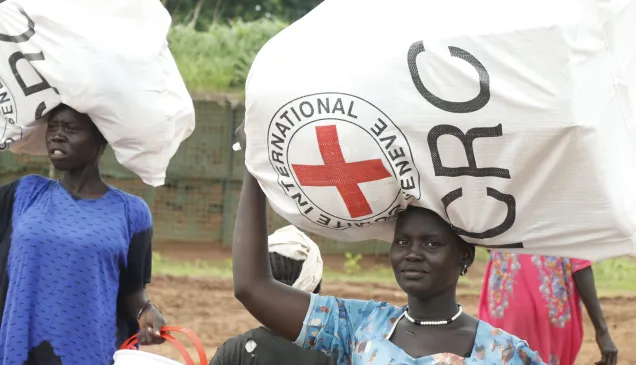Status of the Protocols additional to the Geneva Conventions of 1949 and relating to the protection of victims of armed conflicts, United Nations General Assembly, 71st session, Sixth Committee. Statement by the ICRC.
Next year will mark the 40th anniversary of the adoption of Protocols I and II additional to the four Geneva Conventions. Their adoption in 1977 was a milestone in the regulation of armed conflicts, and the rules codified in the two Additional Protocols remain as pertinent today as they were four decades ago. For example, both Protocols spell out fundamental guarantees for all persons in the power of a party to an armed conflict. In unambiguous terms, the Protocols prohibit acts of violence against detainees and internees, demand that parties provide them with basic necessities, and require respect for fair-trial guarantees in case of penal prosecution.
Another key achievement of the Additional Protocols was codifying and developing rules on the conduct of hostilities. In treaty law, these rules had remained untouched since the Hague Conventions of 1907. In 1977, States struck a careful balance between what is militarily necessary to overcome the adversary, and limitations on warfare for humanitarian reasons. This delicate balance must always be maintained when parties to a conflict engage in the conduct of hostilities.
Despite these achievements, the ongoing suffering and destruction in contemporary armed conflicts call for decisive steps to strengthen international humanitarian law (IHL).
First, we need to work towards universal ratification of the two Additional Protocols. Today, 174 States are party to Protocol I, and 168 to Protocol II. On the occasion of their 40th anniversary, the International Committee of the Red Cross (ICRC) calls upon States that have not yet done so to ratify the two Additional Protocols.
Second, ratifying treaties is not sufficient. The ICRC reiterates that the principal cause of suffering during armed conflict is not the lack of rules, but insufficient respect for the law. Between 2011 and 2015, the ICRC and Switzerland jointly facilitated a consultation process to identify ways to strengthen compliance with IHL. The process was unprecedented in terms of the number of States that participated and the scope and depth of the discussions. In December 2015, the 32nd International Conference of the Red Cross and Red Crescent recommended the continuation of a State-led intergovernmental process to find agreement on ways to strengthen respect for IHL. The ICRC and Switzerland are facilitating this process, but States need to take ownership and responsibility in order to find credible solutions.
Third, there are also areas in which the existing rules of IHL are insufficient. This is particularly the case regarding the protection of persons deprived of their liberty in relation to non-international armed conflicts. Between 2011 and 2015, concurrently with the consultations on strengthening respect for IHL, the ICRC facilitated consultations on strengthening IHL protection for detainees. We found, and States largely confirmed, that four areas of law need strengthening, namely conditions of detention, the protection of vulnerable groups, grounds and procedures for internment and detainee transfers. The 32nd International Conference recommended the pursuit of further in-depth work with the goal of producing one or more concrete and implementable outcomes, which shall be of a legally non-binding nature and strengthen IHL protections for persons deprived of their liberty.
We strongly encourage States to continue to participate actively in both of these areas of work.
The ICRC also provides States with tools to better implement IHL. For example, in March 2016, we published a revised commentary on the First Geneva Convention, providing up-to-date interpretations of fundamental humanitarian norms. Updated commentaries on the remaining Conventions and the 1977 Additional Protocols are being prepared. Moreover, for the past ten years, the ICRC has been updating the practice section of its Customary IHL Study. The revised commentary and the Customary IHL Study with updated practice are readily available online. Our Advisory Service on IHL also stands ready to support States' efforts to implement IHL domestically.
The ICRC remains fully committed to working with States and to supporting them in their efforts to implement IHL.
Other language versions:



